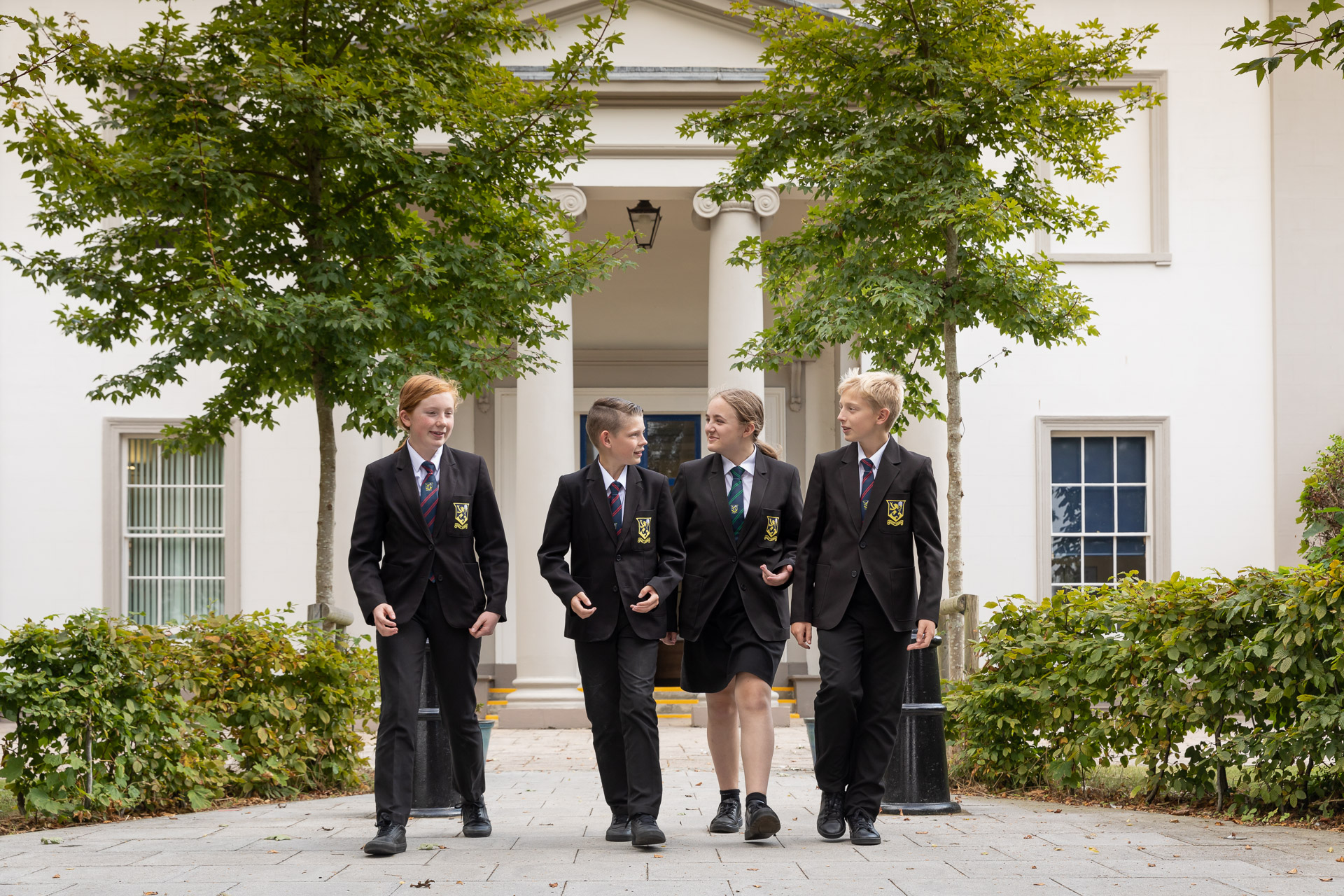Teaching & Learning
Teaching & Learning
Teaching and Learning at Purbrook Park has a focus on adaptive teaching and the metacognition process, to ensure not only the delivery of high-quality teaching, but also to develop habits to aid the learning journey.
Adaptive Teaching
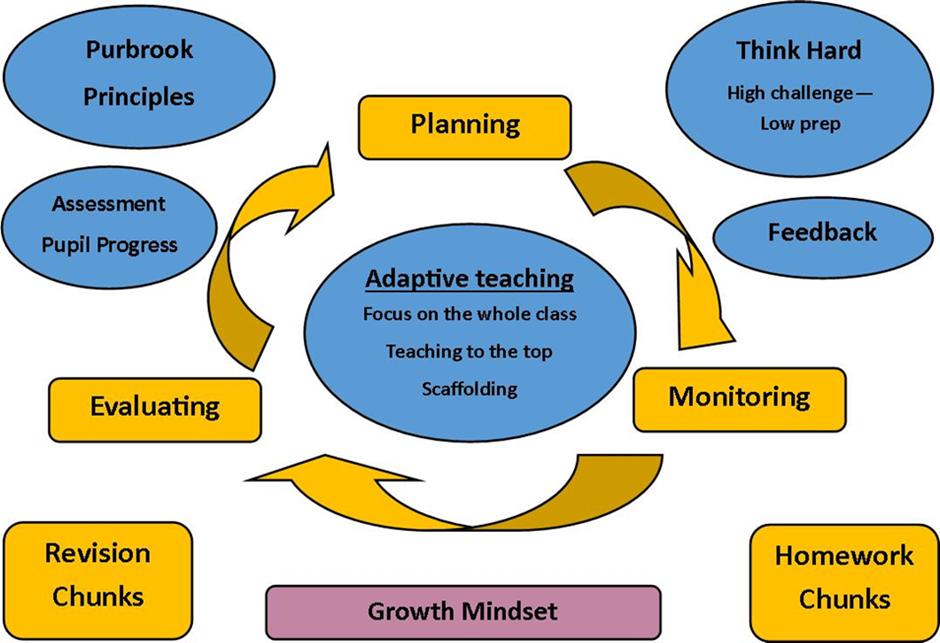
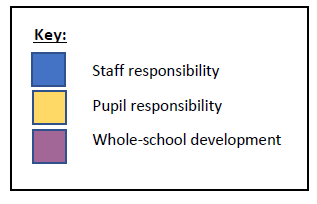
The Purbrook Principles
The Purbrook Principles are used by staff to ensure that lessons are of the highest quality and also coach pupils through the metacognition process. This equips them with the tools they need to evaluate their own learning and become more responsible for monitoring their academic progress.
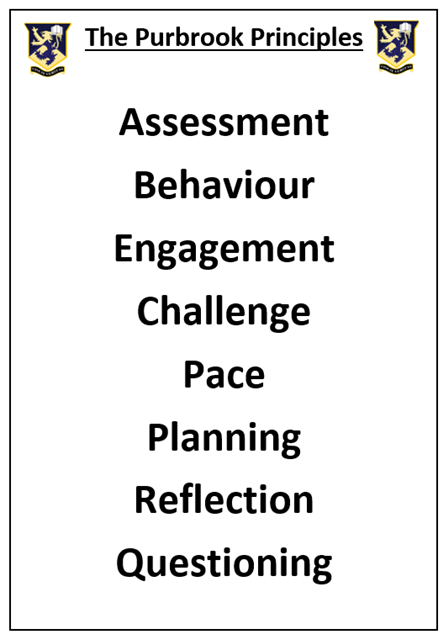
Think Hard
Using ‘Think Hard’ strategies, staff stretch and challenge all pupils in a variety of ways, encouraging them to push themselves in their learning.
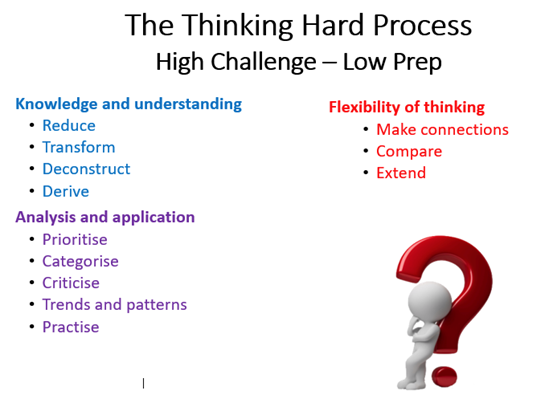
Active Teaching
Active learning is the involvement of the pupil directly in the learning process. More responsibility falls on the pupil through a number of means, including collaboration with the teacher and classmates.
Active learning provides a deeper and more interesting learning experience as it uses activities such as reading, writing, discussion, or problem-solving to promote analysis, synthesis, and evaluation of class content. It also provides pupils with the opportunity to give feedback on how well they have understood the topics being taught to them to identify problem areas in a child’s knowledge and understanding. Active teaching is used in a variety of ways across the school to engage pupils with their learning.
The Metacognition Process
‘Metacognition’ is one of those concepts which remains slightly confusing even after you have sought a definition. When the dictionary asserts that it is the process of ‘thinking about thinking’ and ‘knowing about knowing’ it is quite easy to dismiss its relevance as something quite indulgent and unnecessary. Surely the thinking is the important part? Why bother stopping to put that process under consideration? Why waste the time?
But convoluted as the definition might seem, the value of stopping to reflect on the processes taking place while we and our pupils are learning is crucial, and spending time developing these skills can be transformative.
Research tells us that self-regulated learners are more aware of what they need to work on: they reflect more effectively and take more effective steps to develop their understanding. These skills amplify achievement, build confidence and foster resilience, but, like everything we try to develop in life, they require deliberate practice.
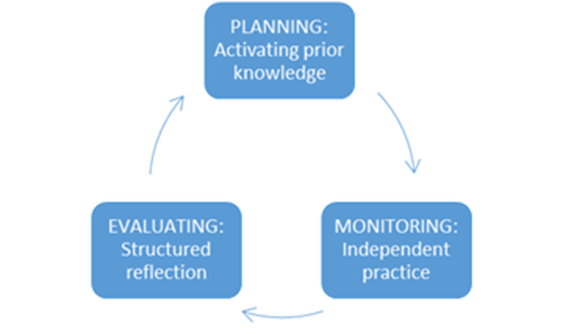
Planning: There is real value in realising the importance of taking time to activate prior knowledge before launching into a new task. Setting retrieval activities and asking questions which encourage pupils to reflect on linked content and previous attempts at similar tasks can help pupils to avoid making the same mistakes, moving forwards with gaps in their knowledge and slowing their progress.
Monitoring: Well-structured monitoring questions and resources encourage reflection during classroom processes and enables pupils to increasingly monitor their own progress, predict stumbling blocks, redirect their efforts and correct errors BEFORE the end point of the lesson or task.
Evaluating: Pupils are used to self-assessing their progress against PLCs and success criteria, but the real impact of this time depends on whether this evaluation is given time and precision and whether pupils are encouraged to increasingly set their own targets for improvement based on a developing confidence to reflect on their progress honestly, constructively and effectively. The better a pupil’s metacognition is, the more likely it is that they will be able to learn from their mistakes: seeing errors as growth opportunities and calibrating their results against previous learning and experiences.
